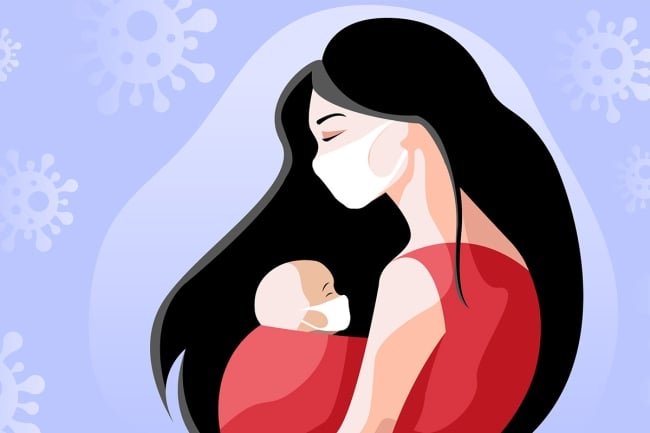You have /5 articles left.
Sign up for a free account or log in.

Elena Sunagatova/iStock/Getty Images Plus
Teaching classes on Zoom while entertaining a toddler who loudly asks for a snack. Finishing a grant submission after preparing dinner for an aging parent while worrying about running out of masks. Trying to navigate chronic illness, with mandatory in-person events, while avoiding becoming infected with COVID-19. These vignettes are not hypothetical but rather challenges many faculty members faced during the pandemic.
Many institutions forget these conditions, even though these pandemic experiences made their mark on key workers—faculty members—in ways that will last for years to come. Caregiving burdens and health concerns affect almost all faculty at some point in their careers. And these issues were exacerbated during the pandemic, especially with school closures and inconsistent public health mandates.
In a previous article, we highlighted how the effects of COVID-19 negatively impacted faculty members’ sense of inclusion and continue to do so, according to two climate surveys of faculty that we conducted in 2018 and 2022, supported by an NSF ADVANCE grant. Moreover, our study has shown that, in addition to gender, race, rank or field, two factors—pandemic-related caregiving burdens and health concerns—have played a particularly major role in decreasing faculty members’ sense of inclusion.
We asked faculty members whether care demands limited their work during the pandemic. Nearly 50 percent of our respondents said that was the case. Perhaps not surprisingly, while faculty inclusion became worse for everyone, impacts were stronger for faculty with caregiving burdens. Feelings of exclusion at the workplace could arise from different caregiving demands across all their relationships piling up.
In addition to asking about pandemic-related care burdens, we asked whether faculty members were caregivers. While faculty with pandemic-related burdens—such as homeschooling children, or caring for ill family members—felt less included, we were surprised to find that caregivers, for the most part, felt more included. Perhaps being a caregiver captured some benefits of having family around during lockdowns, particularly for those with older children or supportive family members who were generally healthy. Social support from family members and friends may protect feelings of inclusion in the workplace. However, when caregiving becomes burdensome and affects productivity, it contributes to faculty feeling excluded.
Many women experienced extreme challenges with work-life balance during the pandemic. We expected that women caregivers might feel less included in their departments because they engaged in intensive care work at home and on their campuses. But surprisingly, women who were not caregivers felt the most excluded among all faculty. For one thing, colleagues might depend on noncaregivers—especially women—to pick up extra service duties because they don’t have family caregiving responsibilities. In addition, noncaregivers may have faced greater isolation, leading to feelings of exclusion.
As for health concerns, about 10 percent of our faculty respondents said personal health issues limited their work during the pandemic. It is concerning, yet not surprising, that those dealing with these health issues feel less included. The sudden transition to remote work, along with the highly politicized reactions to COVID-19, might have hurt their sense of belonging and community.
Faculty who needed accommodations related to their health and/or disability status may have felt the lack of support more acutely upon return to the workplace. One silver lining of the pandemic is that remote work became more accessible, especially for those with disabilities. However, as these accommodations began to fade, faculty with health issues and in need of accommodations may have felt even more excluded.
A better understanding of faculty members’ sense of belonging and engagement with their colleagues and their workplace is key to retaining a more diverse faculty. Our findings suggest that greater recognition, institutional support and accommodations are needed for faculty with health issues and caregiving faculty, such as on-campus childcare facilities, emergency funds for elder and family care, and paid time off.
Almost all faculty members will take on caregiving responsibilities or have health concerns at some point in their careers. Supporting these situations benefits everyone. Institutional policy and procedure need to consider caregiving, health issues and the disability status of faculty to make sure that all faculty feel included and able to be productive.




